News
CORRECT COLLECTIVE ACTION ESSENTIAL TO SAVE SRI LANKA FROM SEVERE CRISIS
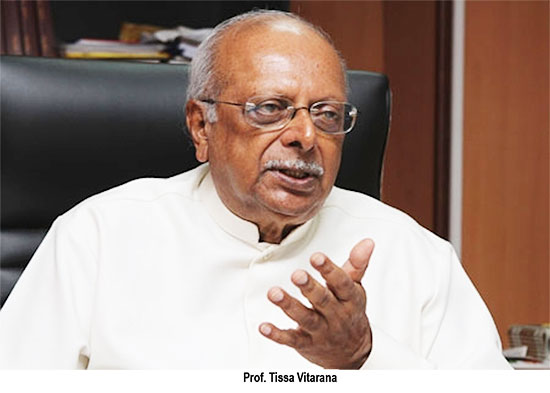
by PROF. TISSA VITARANA
Sri Lanka is facing multiple crises, worst of all a severe economic crisis that can end in bankruptcy. But some Government policy makers are acting as if this is just a hiccup that will pass away and needs no properly targeted drastic action.
For some strange reason the people have not been informed of the gravity of the situation and that a period of austerity with belt- tightening by the whole nation is necessary. Nearly all countries, rich and poor, big and small are faced with this situation. So it is nothing to be ashamed off.
In fact the obtaining of the country’s requirement of vaccines, amid severe competition, was an achievement (though I would have been happier if the mRNA vaccines like Pfizer were left out).The Government policy seems to rely almost entirely on the vaccination programme.
It would appear that the expectation is that if nearly everybody is vaccinated the spread of the disease will also end. But this is not the case as those vaccinated can acquire the infection and also transmitted to others. The vaccination only prevents severe disease and death of the vaccinated individual.
Therefore it is essential that the government strictly enforces the observance of the epidemiological health rules (constant wearing of a good mask, the observance of social distancing, the constant washing of hands well with soap and water if anyone touches an object handled by any other person, and the avoidance of crowds by all. This may need the setting up of Covid-19 committees at village level which can acquire the necessary know how and see that the rules are enforced.
A clear plan of action to address this entire situation and which rallies the whole nation is required. The enforcement of the health rules should be given equal or higher priority in the total program.
Since 1977, after nearly 44 years of a neoliberal economy (where the regulation is by market forces which increase imports and the profit of the super-rich, without providing the basic needs of the people) is the main cause of the crisis.
The cost of imports far outstrips the income from exports, leading to a huge foreign trade imbalance. The drop of dollar income from tourism and expatriate labour due to the Covid-19 pandemic has aggravated the situation. The country has been brought into a situation where our foreign reserves are down to less than one billion US dollars (USD), from an earlier average of USD 7 to 8 billion.
This is not enough to buy our needs from abroad for even one month, nor to repay the accumulated loans acquired mainly after 1977 which amounts to about USD 6 billion per year. The internationally recognized Fitch rating has brought their assessment of our economy down to CC (in a scale that extends from AAA to single C).
Thus as we are rated as being close to bankruptcy and no foreign investors can be expected to come here due to the high risk. Therefore we are forced to borrow short term loans at high interest, specially swaps. Sri Lanka is caught in a foreign “debt trap” and is fast running out of USD to buy even essentials like food and medicines from abroad. The lack of dollars will lead to a severe shortage of essentials. The result will be racketeering and high prices – a black market. This will send prices up further.
Within the country the economic situation is extremely bad and specially people in the villages and the urban slums are suffering terribly. Within Sri Lanka 60% of our population is living in poverty. Hunger is widespread and many live on one meal a day. The malnutrition level has gone up to 18.3% (which means that out of five children who are five years of age one is suffering from malnutrition). Not only will the body and mental development of these malnourished children be badly affected, it can have some adverse impact on the entire future generation.
A significant section of the future generation will be mentally deficient, in addition to being short and thin and may behave abnormally. There may be an increase of crime and misbehavior. This trend has already appeared among a significant section of the present younger generation (who have lost their jobs, and become drug addicts as well as part of the underworld).
It is sad to see intelligent and skilled youth queuing up to obtain passports and visas to go abroad, at a time when we need their skills and energy to develop our country. We can ill-afford this brain drain. My fear is that if the economic and social situation deteriorates further, employed professionals too may join this queue.
How do we prevent or minimize these unfortunate trends? The question asked is how long will this Covid-19 pandemic last. On the basis of experience with past pandemics and epidemics, which have generally existed in epidemic form for two or three years, they have then become milder routine infections like the common cold, or influenza. The appearance and increase of herd immunity contributes to the above change. It is my hope that with Covid -19 too this will be the case.
With regard to the repayment of our loans as a country which has been badly hit by the Covid-19 pandemic as well as the global economic crisis we are entitled to re-negotiate and restructure the repayment of our sovereign debt. Accordingly we should ask for a period (say about five years) where we do not re pay our debt to the creditors. This is to enable us to bring about the requisite changes of the policies that will result in sustainable development. During this period we can ensure that our people obtain their essential needs and their suffering be minimized.
The welfare state (free health, free education, allowances to the needy etc.) must not only be properly implemented during this period but also be sustained in the future. Our dependence on loans can be minimized by ensuring that the haves also take a significant part of the burden. The tax rate in Sri Lanka, both personal (14%) and corporate (18%) is one of the lowest in the world. This must be increased to well above the upper limit of tax charged in countries of Europe (35-40%).
Features
Ramadan 2026: Fasting hours around the world

The Muslim holy month of Ramadan is set to begin on February 18 or 19, depending on the sighting of the crescent moon.
During the month, which lasts 29 or 30 days, Muslims observing the fast will refrain from eating and drinking from dawn to dusk, typically for a period of 12 to 15 hours, depending on their location.
Muslims believe Ramadan is the month when the first verses of the Quran were revealed to the Prophet Muhammad more than 1,400 years ago.
The fast entails abstinence from eating, drinking, smoking and sexual relations during daylight hours to achieve greater “taqwa”, or consciousness of God.
Why does Ramadan start on different dates every year?
Ramadan begins 10 to 12 days earlier each year. This is because the Islamic calendar is based on the lunar Hijri calendar, with months that are 29 or 30 days long.
For nearly 90 percent of the world’s population living in the Northern Hemisphere, the number of fasting hours will be a bit shorter this year and will continue to decrease until 2031, when Ramadan will encompass the winter solstice, the shortest day of the year.
For fasting Muslims living south of the equator, the number of fasting hours will be longer than last year.
Because the lunar year is shorter than the solar year by 11 days, Ramadan will be observed twice in the year 2030 – first beginning on January 5 and then starting on December 26.

Fasting hours around the world
The number of daylight hours varies across the world.
Since it is winter in the Northern Hemisphere, this Ramadan, people living there will have the shortest fasts, lasting about 12 to 13 hours on the first day, with the duration increasing throughout the month.
People in southern countries like Chile, New Zealand, and South Africa will have the longest fasts, lasting about 14 to 15 hours on the first day. However, the number of fasting hours will decrease throughout the month.

[Aljazeera]
Latest News
We will not allow anyone to drag the country backward by inciting racism. — PM
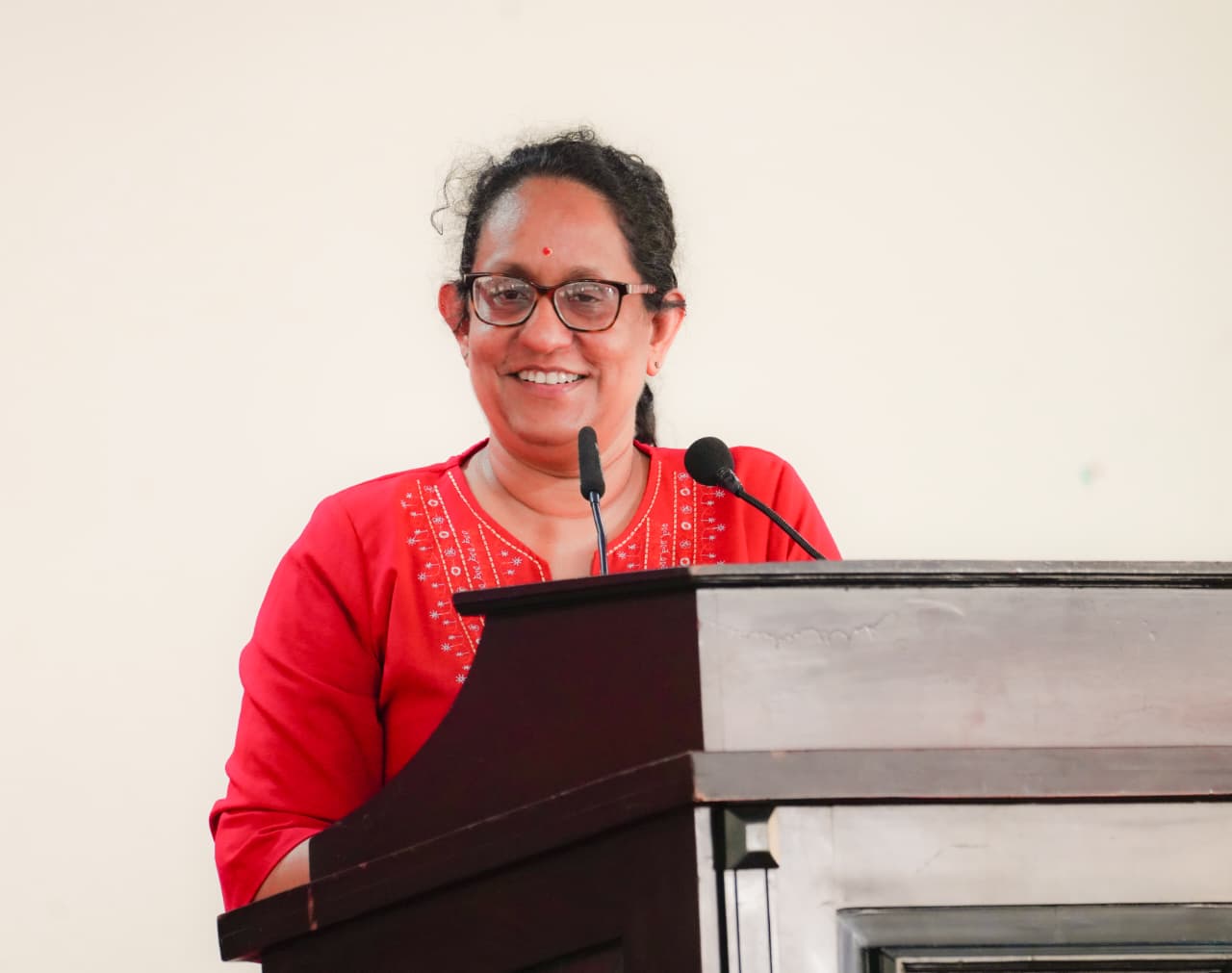
Prime Minister Dr. Harini Amarasuriya stated that no one will be allowed to drag the country’s future backward by inciting racism, and emphasized that women must step forward to carry forward the change that has been initiated.
The Prime Minister made these remarks while addressing the Mannar District Women’s Meeting held on Sunday [15 th of February] in the Adampan area of the Mannar District.
Speaking further, the Prime Minister stated:
“You know that our government has brought about a change in women’s representation. According to statistics, about 52% of the population are women. That means women constitute a powerful segment of our country’s population. However, when we consider various sectors and the challenges faced in daily life, the question remains whether this power is reflected in practice.
One of the main problems our country faced was war and violence, which caused us to view one another with distrust. As a result, we truly became a divided nation. Consequently, women were the ones who suffered the most. We know that many women in this country have endured immense suffering after losing their mothers, fathers, sons, daughters, brothers, and sisters. We are aware that many such women live in this region as well. Although the war ended a long time ago, peace has still not taken root in people’s hearts. Even today, there are women who do not know what happened to their family members. There are many women who struggle alone to protect and sustain their families.
Our government is committed to go against racism. We believe that everyone in this country should be able to live safely with equal rights. However, racist groups are still attempting to create divisions among people. They are not interested in stopping corruption, protecting democracy, ensuring the equal application of the law, or strengthening the economy. Their only objective is to gain power, not for the benefit of the people, but for themselves.
We know how much they have destroyed this country’s resources. In 2022, the country faced a massive economic collapse. But by 2025, our government was able to strengthen the economy by putting an end to theft, corruption, and waste. That is why, when Cyclone Ditwah struck, we were able to assist the people without borrowing loans.
Recently, for the first time in 21 years, we were able to distribute profits of the Milco institution among dairy farmers. Within about a year, by increasing revenue streams and minimizing waste in institutions, we were able to share profits.
We are rebuilding institutions which have fallen apart putting an end to fraud and corruption, stopping the waste, and ensuring that the benefits reach the people. Yet, some are attempting to take the country backward by stirring up racism.
Women are among those most affected by racism. Should we allow ourselves to be divided again and let discord rise? No. That is why women’s leadership is essential. To carry forward the change we have begun, women must step forward. There is still much work to be done. We will not allow our forward journey to be reversed.
One of the major challenges we face today is the drug menace. We fear for our children becoming victims of drugs, and as a result, family disputes have increased. People are afraid to go out or leave homes due to drug addicts. The President has made a special commitment to eradicate harmful drugs from the country. Those who were in power previously provided protection to these groups, preventing the police from enforcing the law properly. Today, we have instructed the police to enforce the law correctly. The police can now perform their duties properly, and the judiciary is delivering independent decisions. If a crime is committed, punishment must follow. The law is equal for everyone. We are aware that there are still areas where the law is not properly enforced.
There are still women and children who suffer from violence and abuse. The law must be more effective in ensuring the safety of women and children. We are increasing judicial capacity and taking steps to address such cases more swiftly.
Mothers make great sacrifices with faith in their children’s education. That is why we are working to provide quality education to all children. After five years, we are recruiting graduate teachers this year, and they will definitely be assigned to schools with vacancies. Proper appointments of principals had not been made earlier; we began filling these vacancies last year. Alongside this, we are developing school infrastructure. There is no distinction between big schools and small schools. Every school belongs to our children.
We are developing one school in each division and have informed District Development Committees to nominate those schools. We are also working to establish smart classrooms in every secondary school. In addition, from this year, education for Grade One has commenced under a new curriculum.
We came to power to rebuild this country, and we must do so. Women contribute significantly to the economy, yet they receive the lowest wages. Women have achieved high progress in all sectors. Therefore, when women engage in self-employment from home or participate in the workforce, facilities must be created to ensure the safety and care of their children”
The occasion was attended by the Member of Parliament Jegatheeswaran, along with municipal and divisional council representatives and a large number of women.
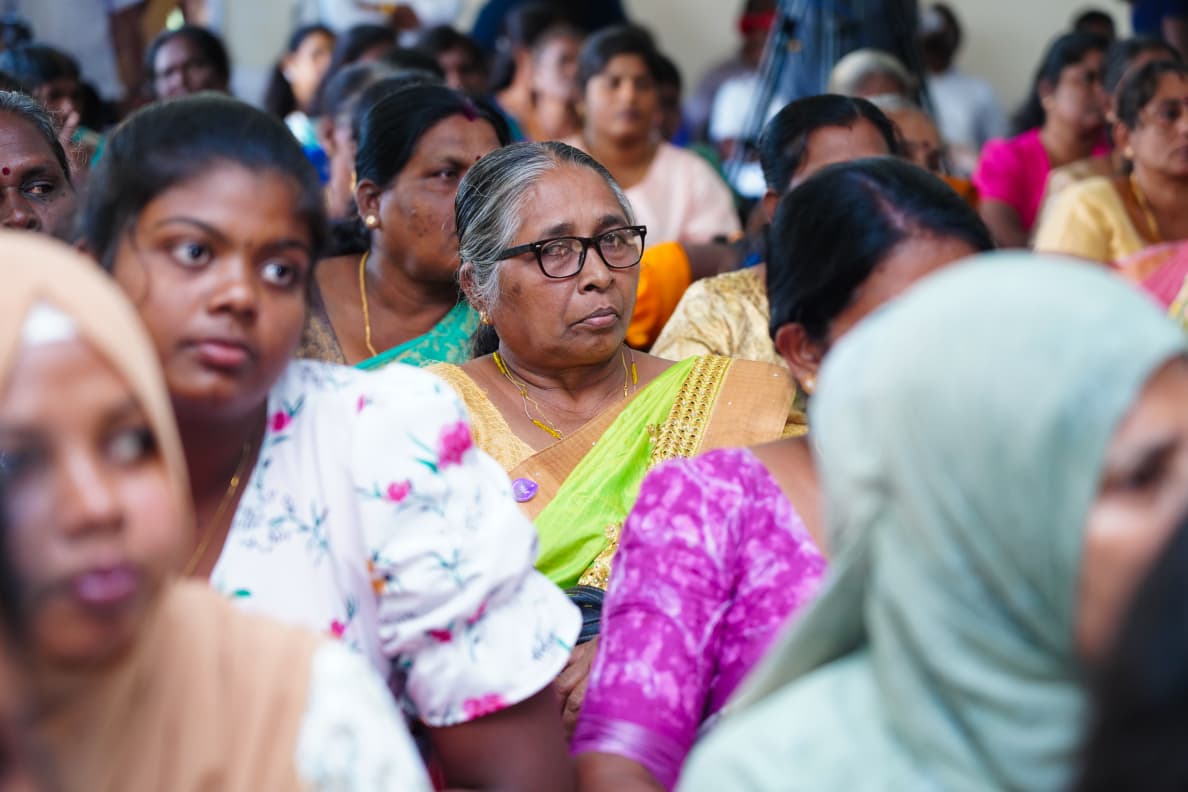
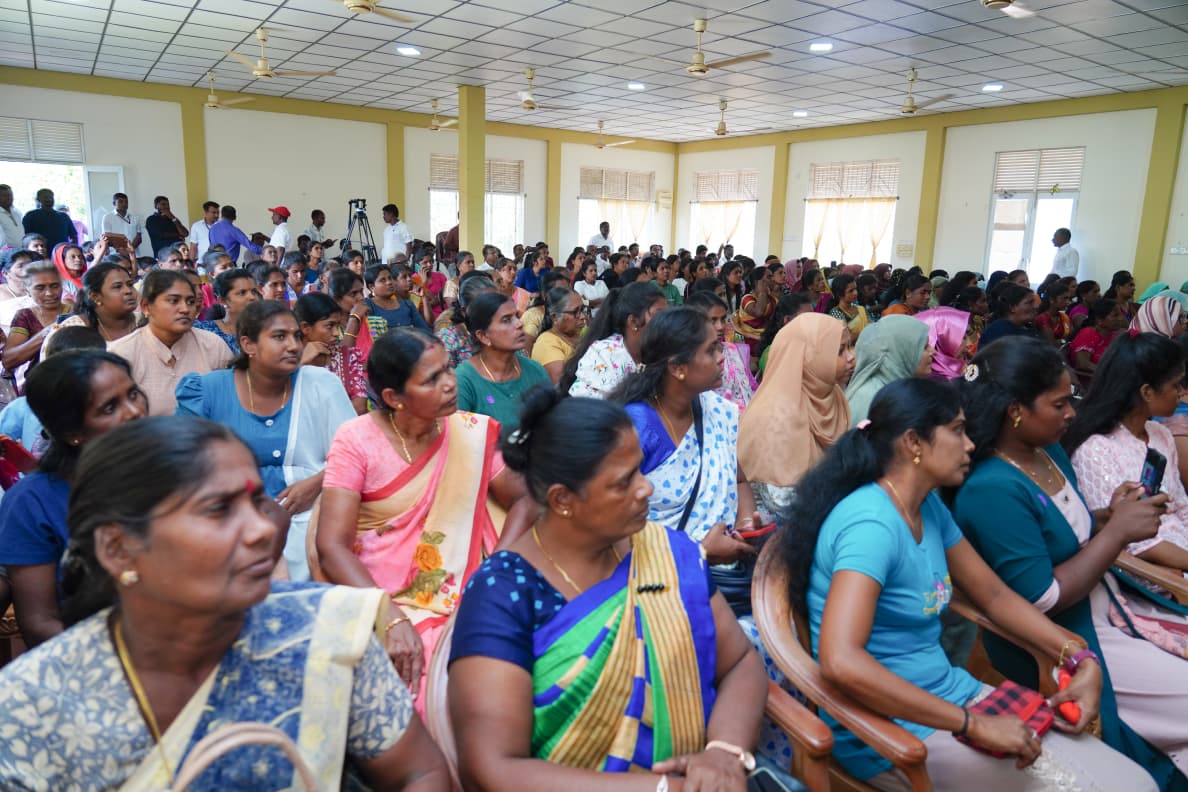
[Prime Minister’s Media Division]
News
Patali: Four out of 25 low-quality coal shipments caused Rs. 1,759 mn loss
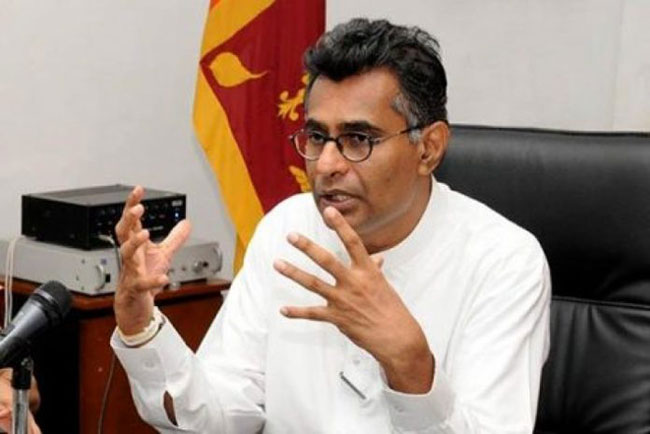
CIABOC urged to deal with NPP the way it dealt with Mahindananda, Nalin
Declaring that large-scale premeditated coal import fraud had caused massive losses, ex-Minister Patali Champika Ranawaka has urged the CIABOC (Commission to Investigate Allegations of Bribery or Corruption) to deal with it, the way former Ministers Mahindananda Aluthgamage and Nalin Fernando were dealt with.
The Colombo High Court Trial-at-Bar sentenced Aluthgamage and former Sathosa Chairman Fernando on 29th May, 2025, for 20 and 25 years RI, respectively, for committing the offence of corruption by procuring 14,000 carrom boards and 11,000 checkers boards, through Sathosa, to distribute to schools and sports clubs selected by the Sports Ministry, and distributing them to party offices of the government during the 2015 Presidential Election, thus causing a loss of over Rs. 53 mn to the government.
Ranawaka, in a statement posted over the weekend on social media, based on documents furnished to Parliament by the CEB recently, declared that the procurement of substandard coal through an Indian company, faulted for money laundering, has so far resulted in a staggering loss of Rs 1,759 mn.
According to the former Colombo District lawmaker, the losses had been brought down to Rs 1,759 mn after the supplier compensated the government to the tune of Rs 1,037. Pointing out that the losses had been estimated at Rs. 2,796 before the supplier was fined, Ranawaka emphasised that the losses mentioned in CEB documents pertained to four shipments of inferior quality coal.
Ranawaka who had been at the forefront of anti-corruption campaigns over the years said that the government reached an agreement with the controversial supplier and so far only six of the 25 coal shipments were received. Based on the losses so far accrued due to the use of inferior quality coal at the Norochcholai Lakvijaya coal-fired power plant, Ranawaka pointed out gravity of the situation.
Commenting on the penalties imposed on the supplier, Ranawaka said that as he had secured shipments at a much lower cost-perhaps USD 30 to 40 per ton less than the usual rate, paying compensation wouldn’t have been an issue.
The former parliamentarian flayed the CIABOC for its failure to investigate the coal fraud in spite of several complaints lodged with it. Ranawaka warned that the country would have to face the consequences of using what he called low-grade coal. The damages to the plant would have to be estimated later, Ranawaka said, while underscoring the importance of using coal aligned with the plant design.
The Island received a copy of letter CEB General Manager Engineer K.S.I. Kumara sent to the Secretary to the Energy Ministry that exposed the procurement of low-quality coal.
Alleging that President Anura Kumara Dissanayake and the entire cabinet of ministers should be held responsible for the procurement of low-quality products knowing the consequences, Ranawaka underscored the need to identify all those who benefited from the coal deal. The ex-lawmaker questioned the possibility of the coal deal being part of a money laundering project.
Ranawaka said that the powers that be wanted 7.5 mn electricity consumers to bear the losses resulting from the corrupt deal. Having repeatedly promised to slash electricity tariffs substantially, the government was now aiming to crease tariffs by 13.5 percent. Hapless Sri Lankans were charged higher rates at a time crude oil and gas were low in the international market, he claimed.
Ranawaka urged the public to protest while calling for an organized campaign to highlight the corruption at the highest levels of the incumbent dispensation. Ranawaka said that slapping of fines proved that coal shipments hadn’t met the stipulated specifications and all attempts by the current dispensation to shield those responsible failed.
At the onset of his statement, Ranawaka said that the government entered into this corrupt coal deal in spite of the Attorney General’s Office advising them to do away with slack procedures in place during the economic crisis.
Following a recent visit to the power stations, former UNP Deputy Minister Ajith P. Perera, who is also a member of the Constitutional Council eclared that the coal scam had been confirmed. “The biggest tender under the NPP government is corrupt,” the attorney-at-law alleged.
By Shamindra Ferdinando
-

 Life style2 days ago
Life style2 days agoMarriot new GM Suranga
-

 Midweek Review6 days ago
Midweek Review6 days agoA question of national pride
-

 Features2 days ago
Features2 days agoMonks’ march, in America and Sri Lanka
-

 Business6 days ago
Business6 days agoAutodoc 360 relocates to reinforce commitment to premium auto care
-

 Opinion5 days ago
Opinion5 days agoWill computers ever be intelligent?
-

 Features2 days ago
Features2 days agoThe Rise of Takaichi
-

 Features2 days ago
Features2 days agoWetlands of Sri Lanka:
-

 Midweek Review6 days ago
Midweek Review6 days agoTheatre and Anthropocentrism in the age of Climate Emergency













